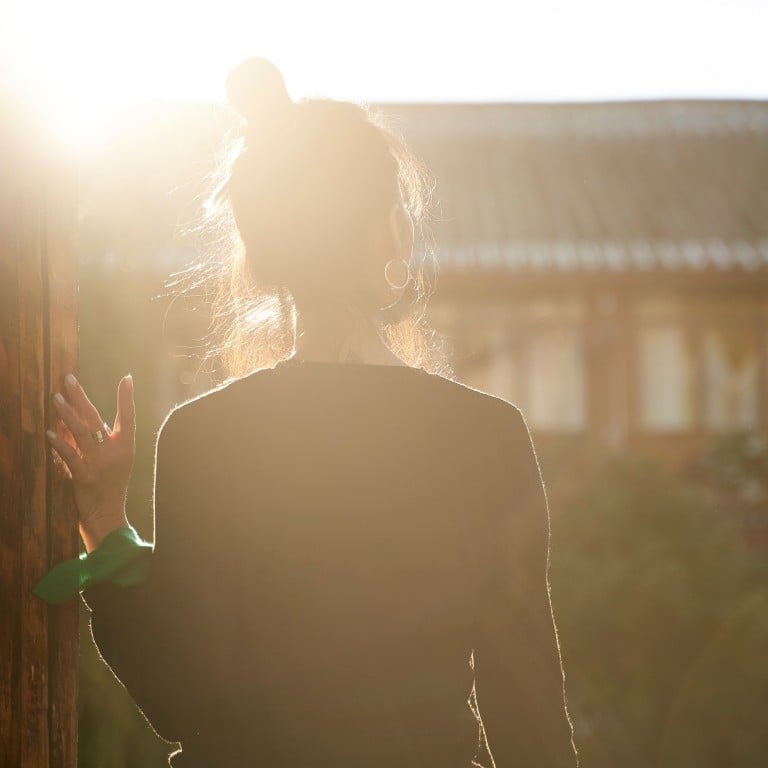
Lie of the land: China’s rural women struggle for land rights in the courts, despite legal protections
- In thousands of cases, courts have ignored evidence when women sue for land compensation from their village assemblies
- Women are sidelined for the sake of stability, ‘village autonomy’, legal expert says
Last week, after two years of lawsuits and two appeals, Zhou Xiaoyu (not her real name) finally received confirmation from the Zhejiang Higher People’s Court that she had lost her case.
She would not be entitled to the collective land – and compensation after its sale – in her village, even though she had more than 30 pieces of evidence proving that she had lived there all her life, including her current household registration.
The decision was made among the villagers themselves, who concluded that Zhou’s case was not valid because she married someone from outside the village. The court stayed out of what it said was the village’s democratic decision.
Zhou married her husband, who was originally from Sichuan province, in 2020. Since then, they have lived with Zhou’s parents in a village in Zhuji, Zhejiang province.
Before Zhou got married, the village went through three rounds of land acquisitions, and each time she received her share of compensation. But in 2021, during another round of acquisitions, she was voted out, she told the Post.
At first, Zhou did not realise she had missed out on the land benefits. Her father had divided the shares equally between her and her younger brother. But a few months later, she began to hear rumours that there had been a vote, which was later revealed in a public notice.
The notice showed that 19 representatives voted on whether “married-out women” in the village could be eligible for land compensation. Sixteen of them voted against it, Zhou said.
In rural China, land remains collectively owned. But amid the country’s rapid urban expansion, local governments sometimes seize land from rural villages to build highways or commercial areas. Compensation for those parcels of land is paid to the village, to be divided among villagers. This is when conflict often erupts.
I thought it was ridiculous. I told people, ‘It’s impossible, something like that would never happen’
Zhou, and many other women, have found they are no longer recognised as part of the clan and as a result, cannot enjoy financial benefits after they “married out”, even if they have legal documents saying otherwise.
Traditional notions in China’s rural areas hold that women are considered to be “thrown-away water” when they marry, while it is the men who stay inside the clan and carry on the family name.
“I thought it was ridiculous,” Zhou said. “I told people, ‘It’s impossible, something like that would never happen’.”
She decided to sue for her share of the village compensation, valued at 120,000 yuan (US$16,899). In 2022, the Zhuji People’s Court ruled in favour of the village, saying the decision of local representatives showed village autonomy and would be respected. Zhou appealed, and received the same ruling two months later.
Eventually, at the end of 2023, the higher court handed down the same, final verdict.
Most of these women have a hard time fighting legal battles because the laws are unclear, according to Lin Lixia, a lawyer from the Beijing-based Qianqian Law Firm.
The firm, which specialises in advocacy for women’s rights, has been approached to act in more than 3,000 disputes involving women fighting for land rights in the past two decades. However, of the 200 cases it has taken on, nearly 90 per cent have been dismissed or resulted in rulings against the plaintiffs.
“Often, when courts cannot find a legal basis, they say it should be decided by village autonomy,” she said.
The concept of “village autonomy” is written into China’s Organic Law, and is designed to set aside a portion of governance and decision-making powers to the villagers themselves.
Rural villages can elect their own committees and manage certain affairs by majority rule, but often, those village rulings infringe on women’s rights, Lin said, even though gender equality is enshrined in China’s constitution.
We do not care about the law on women’s rights – we have our local policy … if all the daughters came to ask for houses, isn’t that chaos?
China has no shortage of legal documents on equality for women at the grass-roots level. Last February, the central government said in a document that rural collective organisations should “protect women’s legal rights and interests”.
In November, the Supreme People’s Procuratorate published six cases it said exemplified the protection of women’s land rights.
“We do not care about the law on women’s rights – we have our local policy … if all the daughters came to ask for houses, isn’t that chaos?” her village party secretary was quoted as saying.
In Zhejiang, there is a specific regulation that defines who is eligible to be a member of a collective economic organisation. In Zhou’s case, she qualifies, but the courts still yielded to the concept of “village autonomy”, Lin said.
‘Sea of misery’: Indian rights lawyer spotlights plight of jailed women
“The court did not check the legality of the villagers’ decision,” she said. “To me, it showed that they did not want to take responsibility and perverted the law.”
Lin said she believes the court put grass-roots social stability above Zhou’s legal rights when it sided with the villagers.
According to research by Lanchih Po, professor of East Asian Languages and Cultures at University of California, Berkeley, the issue has been a source of friction among proponents of traditional village autonomy who have pushed back against top-down political pressure.
In 2004, 122 women and their 144 children sued their villages in Foshan, Guangdong province, but were denied. In 2005, more than 1,000 women wrote letters of protest to the National People’s Congress, China’s rubber-stamp parliament.
In 2009, many villagers in Foshan voted and signed a petition, refusing to honour a court decision to include “married-out women” as collective shareholders. Two village heads were detained, the court forcibly gave the money to women in five villages, and 381 villages sued the district government.
Many of the cases were successful because the commercialisation of land in Guangdong started early and local governments and courts are familiar and empathetic on this issue, Po told the Post. Group lawsuits by these women had caught the attention of the government, which prompted authorities to change local policy to ensure gender equality over land rights, she said.
In blow to Afghan women’s rights, Taliban make arrests over ‘bad hijab’
Zhou has been left with no further legal avenues to pursue and her case is essentially over, but she said she will continue to raise awareness about the problems on social media. She said she does not want her case to be used as a precedent so that women in similar future cases will also be denied their rights by the court.
She wrote a letter on Weibo to the higher court asking it to “correct the mistake”.
“The judicial system is respected because it’s objective and just,” she wrote.
“But if this judgment is biased in terms of gender, the next time it will be biased because of something else.”

.jpg?itok=H5_PTCSf&v=1700020945)

